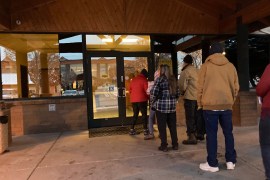Students at Alabama’s Black Colleges Openly Discuss HIV/AIDS; Schools Implement Programs To Prevent Outbreak
Students attending historically black colleges in Alabama now "more openly" discuss HIV/AIDS following the 2004 release of a study showing an increasing number of new HIV cases among black male college students in North Carolina, the AP/Raleigh News & Observer reports. However, some health officials are concerned that awareness and education efforts are not enough (Dawkins, AP/Raleigh News & Observer, 4/4). In the study, presented in February 2004, University of North Carolina-Chapel Hill researchers analyzed state HIV surveillance records for new diagnoses of HIV infection occurring between Jan. 1, 2001, and May 1, 2003, in males younger than age 30 living in 34 North Carolina counties. Researchers found that 73 of the 84 total new cases during that period, or 88%, were among black men, and 11 cases, or 13%, were among white men (Kaiser Daily HIV/AIDS Report, 8/18/04). The "disproportionately large number" of new HIV cases among black students in the North Carolina study "drew the concern" of health officials at black colleges, according to the AP/News & Observer. Alabama state health officials are working to implement an early HIV detection program, but the state currently has little data on the number of HIV-positive black male college students. Individual colleges have taken steps to establish awareness and education programs, as well as HIV testing and counseling, for students. Despite the recent efforts, some school and health officials "question if enough is being done" to prevent a similar outbreak among Alabama college students, according to the AP/News & Observer. "I know it's here, and it's not going to go away," Mary Morris Billings, director of Alabama A&M University's counseling and development office, said, adding, "My greatest fear is that there will be an outbreak on our campus like in North Carolina" (AP/Raleigh News & Observer, 4/4).
This is part of the Morning Briefing, a summary of health policy coverage from major news organizations. Sign up for an email subscription.





